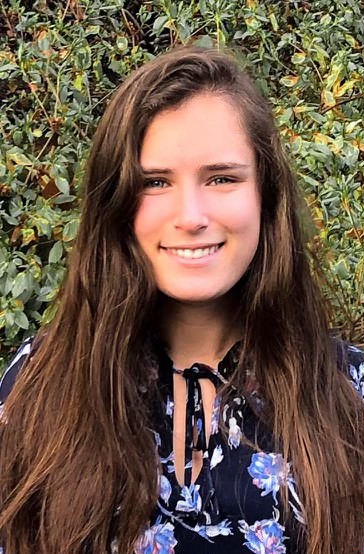Lifesaving Practicum
Music and Harm Reduction
Story by:
Published Date
Article Content
Nina Weisbrod, a second-year Master of Public Health (MPH) student in the Public Mental Health concentration at the Herbert Wertheim School of Public Health and Human Longevity Science at UC San Diego, has taken a unique approach to her practicum project, combining a passion for music with a love of public health and public health policies designed to lessen the negative social and physical consequences associated with various human behaviors.
Weisbrod has planned an entirely donation-based Electronic Dance Music (EDM) fundraiser show, on Jan. 27 at Break Point in Pacific Beach. All of the proceeds from the show supports the non-profit End Overdose, a Los Angeles based nonprofit working to end drug-related overdose deaths through education, medical intervention, and public awareness.

”My work in harm reduction is what has allowed me to combine both public health and music,” she said. “My goals are to spread the word in the San Diego music scene about getting certified to administer Naloxone, to raise as much money as possible for End Overdose to combat the opioid epidemic and to give back to the community.”
Naloxone, also known by the brand names Narcan and Evzio, is an opioid antagonist medication that is used to reverse an opioid overdose. Naloxone competes with opioids in the brain for the same receptor sites. With a special site binding affinity, Naloxone takes precedence at receptor sites and therefore replaces and reverses the overdose effects of the opioids.
According to 2023 data from the National Center for Drug Abuse Statistics, music festivals can be an ideal environment for harm reduction interventions due to the concentration of young people who are at a highest risk for substance use.
Weisbrod has worked to establish herself as point-person to get venues stocked up with harm reduction equipment. She also has experience providing public health services with on-site event roaming teams, including earplugs, hydration, general overdose information, fentanyl testing strips and Naloxone.
The Dangers of Fentanyl
Fentanyl is a synthetic opioid that is up to 50 times stronger than heroin and 100 times stronger than morphine. It is a major contributor to fatal and nonfatal overdoses in the United States. It is available in different forms, including liquid and powder and can rarely be identified as being laced in drugs without fentanyl testing strips.
According to a U.S. Centers for Disease Control and Prevention (CDC) November 2021 press release, the country reached a grim milestone in April 2021, more than 100,000 residents died of drug overdoses in a single year. Opioids, especially the synthetic opioid fentanyl, drove the rise.
In August 2022, Drug Enforcement Administration (DEA) administrator Anne Milgram, noted that fentanyl overdoses are one of the leading causes of death for people ages 18 to 45. The DEA has even created a special exhibit, The Faces of Fentanyl, to commemorate the lives lost from fentanyl poisoning.
In August, the U.S. Senate unanimously passed a resolution designating Aug. 21, 2023 as Fentanyl Prevention and Awareness Day.
“I really wanted to bring the community together to use our powers for good while meeting people where they’re at. Especially a community that is hit so hard by the opioid epidemic,” she said. “It’s crucial that we’re all educated about this so we have the power to protect one another from overdose.”
The Importance of Practicum
The MPH practicum provides all graduate students in the program the opportunity to participate in a field-based public health or population-based experience. This student-led activity is expected to be implemented in collaboration with a sponsoring organization and under the supervision of a qualified site mentor. Practicum sites can include community-based organizations or local, state, federal or international public health agencies.
Weisbrod said the capstone and the practicum are her favorite parts of the MPH program. She said her experience writing grants and helping build community connections were invaluable pieces of her education.
“I’m a hands-on learner who prefers to work directly with the community,” she said. “This practicum project is really important and has real world, hands-on experience … and has been directly applicable to the career I want to pursue after graduation.”
Weisbrod has already seen the direct impact of her work; people regularly reach out to her to ask how they can get involved with End Overdose and how they can get Narcan and test strips.
“I’m so grateful to all who are supporting me with this unconventional idea,” Weisbrod said. “I believe I’m the first person to throw a rave as one of their practicum projects, and I couldn't have done it without the support of the MPH program and my mentor Dr. France Nguyen-Grozavu.”
Outside of academics, Weisbrod acts as the San Diego operations manager for Project Seismic, a San Diego Bass Music DJ Collective. After graduation, she’s hoping to continue her harm reduction work with End Overdose and help save lives. Weisbrod will be graduating in Spring 2024.
Share This:
Stay in the Know
Keep up with all the latest from UC San Diego. Subscribe to the newsletter today.




